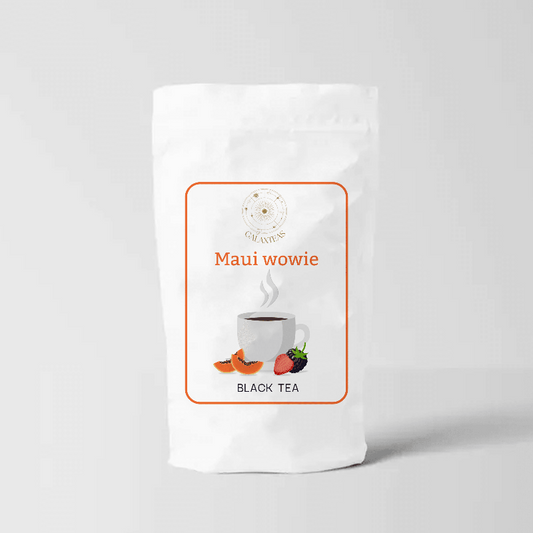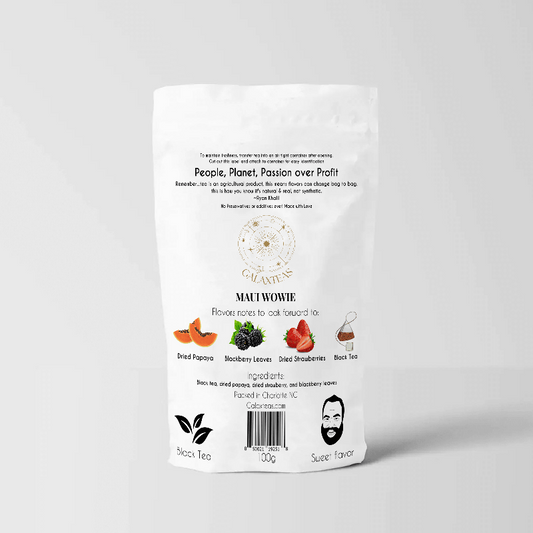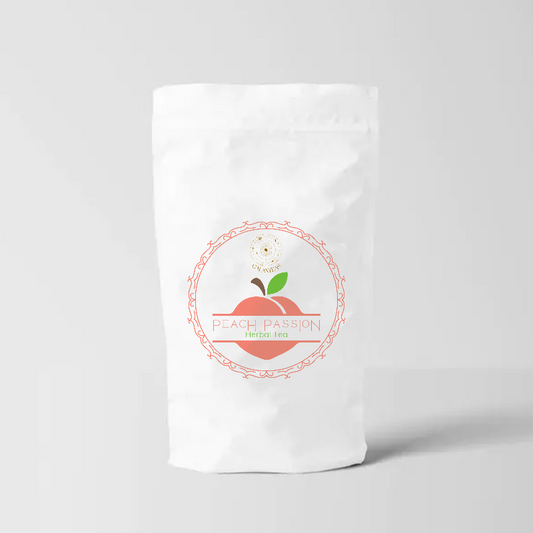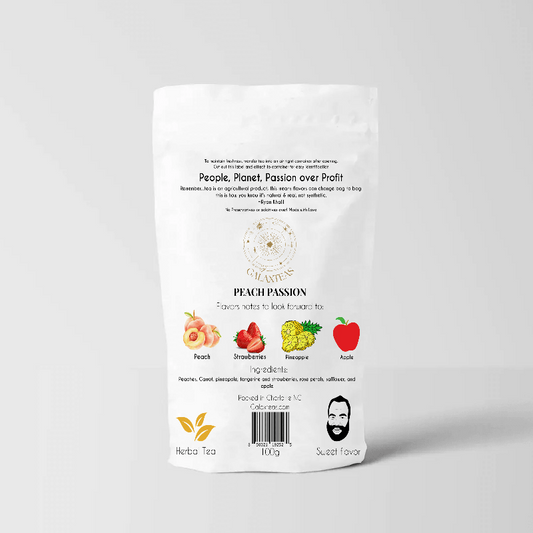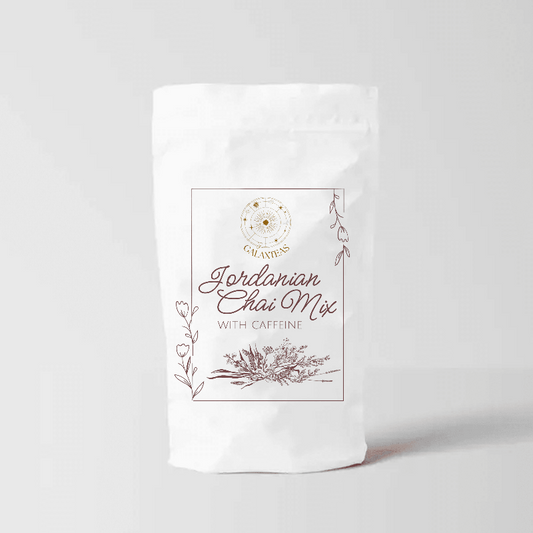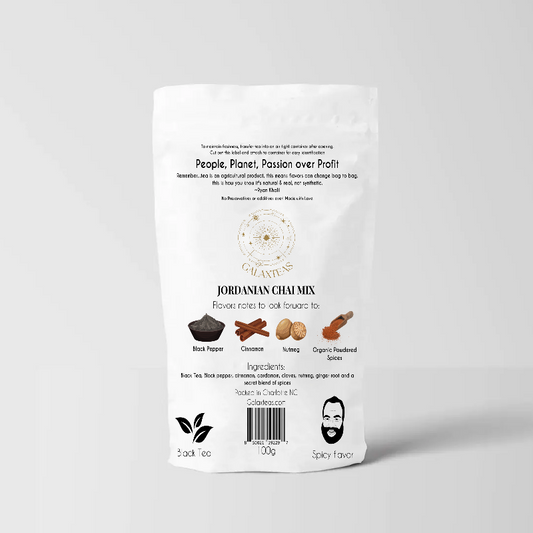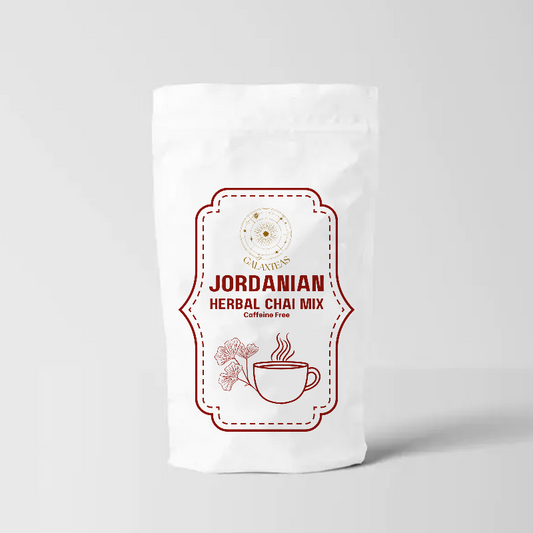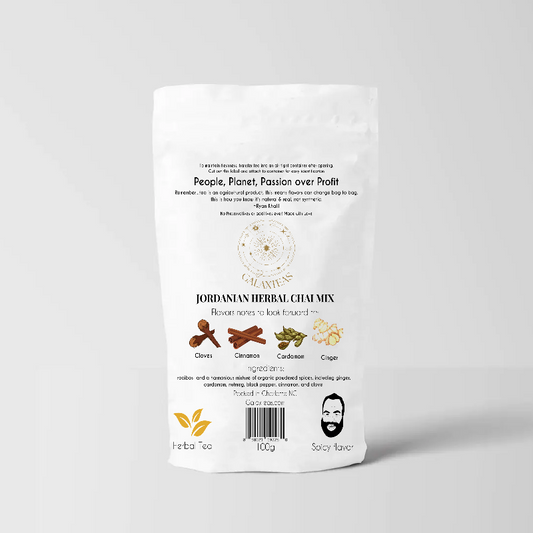How Tea Affects Mental Health? A Comprehensive Exploration
Related Product
Subscribe
Table of Contents
Love tea because it relaxes your mind? Or because it’s perfect to kickstart your day? Well, tea has great effects on mental health. In fact, it has been cherished for centuries for its health benefits, and among them is how it impacts the brain in so many positive ways.
So, read this blog till the end to find out tea’s influence on mental well-being, supported by scientific research and expert insights.
10 Reasons Why Tea is Good for Mental Health
There are different types of teas out there, such as green, black, and herbal teas. All of these contain a range of bioactive compounds that can impact mental health. These include caffeine, L-theanine, flavonoids, and polyphenols; each of them contributes to cognitive function and emotional well-being differently. Some alert you, and some make you feel relaxed. Here are some mental health benefits tea offers.
1. Reduces Stress
Tea is considered a great stress reducer in many cultures. For instance, chamomile and green tea contain compounds that induce soothing and relaxing effects. The act of sipping tea can also serve as a calming ritual, allowing individuals to take a moment for themselves. This combination of chemical and psychological effects can significantly lower stress and enhance overall mental well-being.
2. Enhances Mood
Teas rich in L-theanine can elevate mood and promote feelings of happiness. The calming effects of L-theanine help counteract anxiety, leading to a more positive emotional state. This is why a tea time routine can contribute to improved mood stability and emotional balance.
3. Improves Focus and Concentration
The combination of caffeine and L-theanine in tea can enhance cognitive function, focus, and concentration. This synergy alerts your mind without the jitteriness often associated with coffee. In fact, it is already quite famous for this benefit. Many people find sipping tea when studying or working on complex projects a great help.
4. Promotes Relaxation
Herbal teas, such as lavender and valerian root, are known for their relaxing properties. These teas can help calm the mind and body, making them ideal for unwinding after a long day. Incorporating relaxation-promoting teas into your evening routine can improve sleep quality and overall mental health.
5. Supports Cognitive Function
Regular tea consumption has been linked to improved cognitive function, particularly in older adults. The antioxidants and anti-inflammatory properties found in tea may help protect brain health and reduce the risk of cognitive decline. Drinking tea can support memory retention and enhance overall mental clarity, contributing to better cognitive performance over time.
6. Alleviates Anxiety
Some tea varieties have been also shown to alleviate symptoms of anxiety. The calming effects of these teas can help reduce feelings of nervousness and promote a sense of calm. Incorporating anxiety-reducing teas into your daily routine can provide a natural way to manage stress and improve emotional resilience.
7. Enhances Social Connections
Tea drinking often involves social interaction, which can enhance feelings of connection and belonging. Sharing a cup of tea with friends or family fosters positive emotions and reduces feelings of loneliness. This social aspect of tea drinking can also improve mental health.
8. Provides Antioxidant Benefits
Tea is rich in antioxidants, which help combat oxidative stress and inflammation in the body. These can protect brain health and contribute to improved mental clarity and emotional stability. Hence, regular consumption of antioxidant-rich teas may help reduce the risk of mental health disorders and support overall cognitive function.
9. Aids in Sleep Quality
Tea keeps you awake, sure… But did you know that it can also help you sleep better? Herbal teas like chamomile and valerian root are known for their sleep-inducing properties. Drinking these teas before bedtime can help relax the mind and body. Improved sleep quality is crucial for mental health, as it enhances mood, cognitive function, and emotional resilience.
10. May Help Prevent Depression
Emerging research suggests that regular tea drinkers may have a lower risk of developing depression. After all, the combination of antioxidants and calming compounds in tea can positively influence mood and emotional health. So, incorporating tea into your daily routine can go a long way. It may serve as a preventive measure against mood disorders, promoting long-term mental well-being.
These benefits highlight the multifaceted role tea can play in supporting mental health, making it a valuable addition to a holistic approach to well-being.
The Science Behind Tea and Mental Health
Tea’s link to mental health lies in its rich bioactive profile. Simply put, the compounds in tea influence brain chemistry and mood regulation. These are the reason why tea can enhance alertness, reduce stress, and protect neurons from oxidative damage.
There are also several studies backing these effects. For instance, a study published in the journal Nutrients found that regular tea drinkers reported lower levels of stress and anxiety compared to non-drinkers. Another study in Psychological Medicine highlighted the potential protective effects of tea against depression. The following components are why tea is considered so good for the mind:
- Caffeine
- L-theanine
- Epigallocatechin gallate (EGCG)
- Flavonoids
- Polyphenols
Let’s talk about how these compounds impact your mind.
How Caffeine in Tea Affects You?
Caffeine is a well-known stimulant found in tea that can enhance alertness and concentration. Studies have shown that moderate caffeine consumption can improve mood and cognitive performance. However, it’s essential to balance caffeine intake, as excessive consumption may lead to anxiety and restlessness.
Is L-Theanine in Tea Good for You?
L-theanine is an amino acid predominantly found in green tea. It is known for its calming effects on the mind. Research indicates that L-theanine can promote relaxation without causing drowsiness. This quality makes it an excellent choice for those seeking to reduce stress and anxiety. It can also help improve focus and attention, particularly in high-pressure situations.
Are Antioxidants in Tea Good for Mental Health?
Tea is rich in antioxidants, particularly flavonoids. And these compounds have been linked to various health benefits, including improved mental health. Antioxidants help combat oxidative stress, which can negatively impact brain function and contribute to mental health disorders. This is why regular tea consumption (moderate) can play a role in protecting against cognitive decline and mood disorders.
Types of Teas and Their Impact on Mental Health
Because tea leaves are processed differently to make varieties of tea, each type affects mental wellbeing differently. For example, green tea is considered an anxiety fighter, meanwhile black tea is a great pick-me-up. Here’s how several tea types affect you and brain chemistry:
|
Tea Type |
Mental Health Benefits |
Caffeine Content |
Best Time to Have |
|
Green Tea |
Reduces anxiety, improves focus, manages stress. |
Moderate |
Morning or early afternoon |
|
Black Tea |
Elevates mood, boosts energy, enhances mental alertness. |
High |
Morning or early afternoon |
|
White Tea |
Provides gentle calm, protects cognitive function. |
Low |
Afternoon or evening |
|
Oolong Tea |
Balances energy, reduces stress, enhances cognitive function. |
Moderate |
Afternoon |
|
Chamomile Tea |
Reduces anxiety, promotes sleep, calms the nervous system. |
Caffeine-free |
Evening |
|
Lavender Tea |
Relieves stress, promotes emotional balance. |
Caffeine-free |
Evening |
|
Lemon Balm Tea |
Stabilizes mood, reduces anxiety, enhances cognitive function. |
Caffeine-free |
Afternoon or evening |
|
Passionflower Tea |
Powerful anxiety reduction, promotes calm. |
Caffeine-free |
Evening |
|
Valerian Root Tea |
Strong sedative effects, improves sleep quality. |
Caffeine-free |
Evening |
|
Rooibos Tea |
Naturally calming, rich in minerals, caffeine-free. |
Caffeine-free |
Evening |
|
Yerba Mate |
Sustained energy, enhanced focus, mood elevation. |
High |
Morning or early afternoon |
|
Pu-erh Tea |
Supports gut-brain axis, provides steady energy. |
Moderate |
Afternoon |
➢ Green Tea
This one has exceptional mental health benefits, primarily due to its unique combination of L-theanine and moderate caffeine content. Matcha, sencha, and gyokuro are best for this purpose. The powerful bioactive duo in them creates a state of "calm alertness" that's particularly beneficial for mental well-being. The key mental health benefits of green tea include:
- Anxiety Reduction: L-theanine promotes GABA production, which has calming effects on the nervous system
- Improved Focus: The synergy between L-theanine and caffeine enhances concentration without jitters
- Stress Management: Regular consumption has been linked to lower cortisol levels
- Neuroprotection: High levels of EGCG (epigallocatechin gallate) may protect against cognitive decline
➢ Black Tea
It is the most widely consumed tea globally and for a reason. It offers robust mental health benefits through its higher caffeine content and unique theaflavin compounds formed during the oxidation process. Earl grey, English breakfast tea, and Ceylon tea offers great mental health benefits. Here are the Mental Health Benefits to buy black tea:
- Energy Boost: Higher caffeine content provides sustained energy without crashes
- Mood Elevation: Theaflavins may help regulate neurotransmitters like serotonin
- Mental Alertness: Ideal for combating mental fatigue and improving cognitive performance
- Social Bonding: Often consumed in social settings, promoting connection and community
➢ White Tea
White tea offers the most delicate approach to mental wellness. It undergoes minimal processing that preserves maximum antioxidant content while providing gentle mental health support. Notable varieties that are great for you are silver needle and white peony.
Some of its key mental health benefits of buying white tea include:
- Subtle Calm: Lower caffeine content provides gentle mental clarity
- Antioxidant Protection: Highest levels of catechins protect against oxidative stress
- Cognitive Preservation: May help prevent age-related cognitive decline
- Gentle Energy: Provides sustained energy without overstimulation
➢ Oolong Tea
This tea is a perfect middle ground between green and black tea. After all, it offers moderate caffeine levels with unique polyphenol profiles that support mental balance. Here are some mental health benefits you can sip on with oolong tea:
- Balanced Energy: Moderate caffeine provides steady mental energy
- Stress Reduction: Partial oxidation creates unique compounds that promote relaxation
- Cognitive Enhancement: Polyphenols support brain health and memory function
-
Emotional Stability: Regular consumption may help stabilize mood swings
Are Herbal Teas Good for Mental Health?
Herbal teas can benefit mental health, though effects vary by plant. For example, chamomile contains apigenin, which may promote relaxation and reduce anxiety. Peppermint tea can support mental clarity, while lemon balm has been linked to improved mood and calmness. Unlike teas from Camellia sinensis, most herbal teas are naturally caffeine-free. This makes them suitable for stress relief without stimulating effects. While not a cure, regular consumption can be a soothing, supportive addition to a balanced mental health routine.
Herbal Teas & Mental Health
Although not made of the Camilla sinensis plant, herbal teas have great mental wellness impact. In fact, it is known as nature’s therapeutic arsenal. There come in so many caffeine-free options with: specific mental health benefits derived from various plants and botanicals. Here are some of them:
● Chamomile Tea
Widely known for reducing anxiety, promoting sleep, and soothing the nervous system. Its key active compound, apigenin, binds to benzodiazepine receptors in the brain, producing mild sedative effects without the risk of dependency. This makes it particularly effective for evening relaxation, managing insomnia, and easing general anxiety.
● Lavender Tea
Lavender tea offers both psychological and physiological relaxation; it reduces stress hormones and promotes emotional balance. Its active compounds, linalool and linalyl acetate, are also well-known in aromatherapy for their calming aroma and stress-relieving effects. Lavender tea is best enjoyed when seeking stress management, emotional regulation, or overall relaxation.
● Lemon Balm Tea
This is a refreshing herbal infusion that can help reduce anxiety, improve mood, and enhance cognitive function. Rich in rosmarinic acid and flavonoids, it offers a gentle but effective way to calm the mind while supporting mental clarity. It is particularly suited for individuals dealing with mild depression, anxiety, or occasional mental fog.
● Passionflower Tea
This one is a potent herbal remedy for anxiety, restlessness, and overactive thoughts. Its active compounds, vitexin and isovitexin, increase GABA levels in the brain, which helps quiet the nervous system and promote calm. It is often recommended for severe anxiety, panic disorders, and tension that interferes with relaxation.
● Valerian Root Tea
This is among the strongest natural herbal sedatives available. Its active compound, valerenic acid, interacts with GABA receptors in the brain, helping to induce sleep and improve sleep quality. It is particularly beneficial for those suffering from insomnia, severe sleep disturbances, or nighttime anxiety.
● Ashwagandha Tea
This one is a powerful adaptogen that helps the body cope with stress by reducing cortisol levels and balancing the stress response. It supports resilience against chronic stress and help combat burnout. This tea is especially beneficial for individuals experiencing adrenal fatigue or ongoing high-pressure situations.
● Basil Tea
Also known as Tulsi tea, this one is an adaptogenic herbal infusion that promotes emotional balance and supports the body’s ability to manage stress. Its active compounds, ocimumosides and eugenol, contribute to mood stability and stress reduction. It is well-suited for daily stress management and long-term emotional resilience.
● Rooibos Tea
Rooibos tea, or red bush tea, is naturally caffeine-free and rich in minerals. Hence, this makes it a calming choice for those sensitive to stimulants. With its smooth flavor and antioxidant profile, rooibos offers relaxation without caffeine crashes. It is ideal for evening enjoyment, sensitive individuals, and even children.
● Yerba Mate
Yerba mate provides a sustained energy boost without the jitteriness often associated with coffee. Containing caffeine, theobromine, and theophylline, it enhances focus, uplifts mood, and supports mental stamina. It is particularly beneficial for combating mental fatigue, supporting productivity, and easing low mood during the day.
● Pu-erh Tea
This tea is good for both digestive and mental health. After all, it is rich in probiotics and polyphenols. Its composition promotes better mood regulation while providing steady, gentle energy. And pu-erh tea is also good for the gut. It’s a great beverage for those who often feel cranky because of digestive issues.
How to Choose the Right Tea for Your Mental Health?
Choose tea based on your mental health needs: green tea for alertness and focus, chamomile or lemon balm for relaxation, and black tea for sustained energy. Also, consider your caffeine sensitivity, flavor preference, and quality. Moreover, choose for reputable sources such as Backyard Brew to ensure maximum bioactive compounds and health benefits.
● For Anxiety and Stress
In the morning, a gentle cup of green tea or white tea can provide calm alertness without overstimulation. During the afternoon, oolong tea offers balanced energy, while chamomile soothes frazzled nerves. By evening, calming herbal options like lavender, chamomile, or valerian root can help ease the body into restful relaxation.
● For Depression and Low Mood
Energizing teas such as black tea or yerba mate can help lift energy and motivation during the day. For a more balanced effect, green tea or lemon balm can promote a steady, centered mood. In the evening, passionflower or holy basil teas offer gentle emotional support and stress relief.
● For Focus and Cognitive Function
Matcha green tea, with its high L-theanine content, promotes sustained concentration and mental clarity. Oolong tea provides a steady, gentle focus without the jitters of stronger caffeinated drinks. Herbal blends infused with ginkgo can further support memory and cognitive performance.
● For Sleep and Relaxation
Chamomile tea is a classic choice for easing into sleep before bedtime. Valerian root can be particularly helpful for more severe insomnia, while lavender tea offers a gentle, aromatic pathway to relaxation for those seeking a lighter touch.
Your tea choices have a big role on your mental health. Whether it’s easing anxiety, lifting mood, sharpening focus, or promoting restful sleep, you can turn each cup into a purposeful act of self-care. Over time, these mindful selections can become a comforting ritual that supports both emotional balance and overall well-being.
Some Tips for Incorporating Tea into Your Routine
Making tea a mindful part of your daily life can amplify its mental health benefits. Beyond its soothing warmth and rich flavors, tea can serve as a small daily ritual that supports focus, relaxation, and emotional balance. By choosing the right types and creating intentional habits, you can transform a simple cup into a powerful wellness tool.
⭢ Choose Quality Teas
Always buy high-quality loose-leaf teas or organic tea reputable brands such as Backyard Brew. This is because premium teas often have higher concentrations of beneficial compounds like L-theanine and flavonoids, and they deliver a more nuanced flavor profile. Avoid overly processed or artificially flavored teas when possible.
⭢ Experiment with Varieties
Explore different tea categories like green, black, oolong, white, and herbal to find what suits your taste and mood. Some days you may want the gentle stimulation of green tea, while other times the calming notes of chamomile or peppermint might be ideal.
⭢ Create a Tea Ritual
Dedicate a few quiet minutes each day to making and drinking tea without distractions. This mindful practice can slow your thoughts, encourage deep breathing, and create a sense of calm that carries into the rest of your day.
⭢ Pair with Mindfulness Activities
Combine your tea time with journaling, light reading, or a short meditation session. This enhances the calming effect and helps train your mind to associate tea with relaxation and clarity.
⭢ Mind Your Timing
For teas containing caffeine, such as green or black, aim to enjoy them earlier in the day to avoid sleep disturbances. Reserve caffeine-free herbal teas for evenings when you want to wind down.
⭢ Stay Hydrated
Tea contributes to your daily fluid intake, but it shouldn’t replace water entirely. Balance your tea consumption with plain water to maintain optimal hydration and overall health.
Conclusion
The effects of tea on mental health are multifaceted, going to both biochemical and psychological dimensions. From the stimulating effects of caffeine to the calming properties of L-theanine and the social benefits of tea drinking, teas offer more than you think. So, having a refined tea sipping routine can be a simple yet effective way to enhance your mental well-being. As with any health-related practice, it’s essential to listen to your body and consult with a healthcare professional if you have specific concerns.

